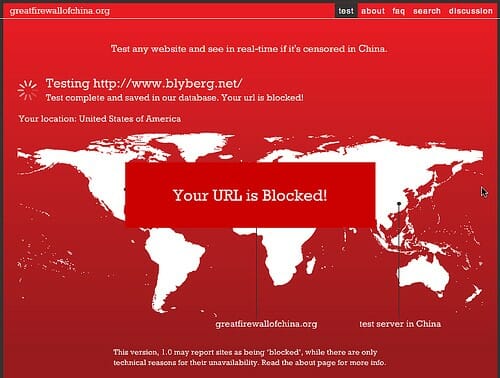Virtual Private Networks, or VPN, are using systems that can make your life way more comfortable. With them, you can increment your privacy and protection levels while browsing the web, a situation that has earned more attention as time goes by and hackers proliferate.
VPNs are famous in many countries in the world: just a handful of them prohibit their use. Unfortunately, a small percentage of users take advantage of the enhanced anonymity that VPNs provide them and use them for criminal activities and unfaithful purposes. In some other cases; governors, presidents, and political authorities want to prevent their citizens from entering some critical web pages.
Are VPNs illegal in China? It is a fair question that doesn’t seem to have a definitive answer. The government wants to prevent their people from accessing sites like YouTube, Google, and Facebook, and because of the Great Firewall, the only way that Chinese people have to enjoy them are installing a VPN network.
This is why the Communist Party of China wants to eliminate the use of VPN in the country, and according to reports, next year is going to be critical in this department. For now, though, Chinese people make VPN use a top priority because they use it both for work and for pleasure.
What is a VPN?
Virtual Private Networks, or VPN, are online tools that let you appear with another online identity different to yours. This situation will not only bring you several benefits and advantages but also makes for a smoother browsing experience.
Privacy and protection are some of the remunerations that you get from acquiring a reliable VPN service. Also, it allows you to stream international content of any kind: movies, TV shows, live sports events and games, short films, documentaries and such because of its ability to bypass geographical restrictions.
Among the hundreds of alternatives that are obtainable in the market either for free or by paying a small monthly fee, TorGuard is the most dependable. It has a top-notch customer service, it allows up to five different devices to connect at the same time, and it has numerous servers in several locations around the world for a better experience. You can use TorGuard to visit your favorite sites in China and any other nation.
How do VPNs work?
The Virtual Private Network creates a simulated “tunnel,” which will carry all of your data and traffic with the intention of safeguarding it and protecting it from many threats and hazards that lurk around the digital world every day.
VPN uses encryption technologies to make sure no one can have access to your credit card information, photos, videos, passwords, browsing history and any other stuff. Some of these encryption technologies are IP security (IPSec), Layer 2 Tunneling Protocol (L2TP)/IPSec, Secure Sockets Layer (SSL) and Transport Layer Security (TLS).
What are some of the benefits of a VPN?
They create a private, safe browsing environment under you can stream online, download relevant content, and visit sites from anywhere on the planet while making it very difficult for third parties to track your location and connection data.
Also, they are resistant to the action of some security protocols like DNS Hijacking and Transparent Proxies, whereas other alternatives like Smart DNS proxy servers would be of no use under those circumstances.
What is the Best VPN for China?
TorGuard. See why, when we explain the benefits of using “Stealth VPN“.
Which are some of the countries that ban VPN?
We are about to enter the China situation in detail, but before we do, here is a list of countries that ban the use of VPN:
- North Korea
- The United Arab Emirates
- Iran
- Turkey
Are VPN legal in China?
The critical question to answer is: are VPN illegal in China? Well, they are still legal in the sense that you will not be going to jail if the police or the Communist Party of China found out that you are using a Virtual Private Network. But the CPC is doing the best they can to make sure you feel harassed and persecuted if they catch you in the act.
Some people found their cell phones blocked from calling, texting or accessing the web without so much of a warning. When they went to the police, they said they prevented the devices and that the users needed to eliminate some of the apps and services to unblock their phones successfully.
There are claims that the CPC wants to eliminate the use of VPNs by February 2018. The three most significant companies that control Internet access and services in the country; China Mobile, China Unicom, and China Telecom, didn’t respond to the reported news, and the Ministry of Industry and Information Technology (MIIT) denied the allegations.
If the rumors prove to be true, any of the companies mentioned above will be able to allow their users to implement VPNs. And if they are not, the CPC will keep doing tireless work to prevent individuals and companies from using them.
The “Great Firewall”
Imagine you are an American citizen living in China for work, or professional reasons. Without the aid of a Virtual Private Network, you will not have the ability to watch many websites from your country because of the “Great Firewall.”
What is this humorous wordplay that happens to be a severe issue for accessibility in China? The Great Firewall of China is a series of legal measures, technological tools, and laws that the country uses to regulate the sites that their people visit. They can’t access external web pages of the government selection, which is a way of digital censorship.
Some of these pages are Google, Gmail, Facebook, YouTube, and many other sites that the Western civilization visit at least ten times per day and that some Chinese people recognize are essential not only for entertainment and leisure but also for work. Imagine you need to analyze a video, or you have to send an email, or any simple task: with the presence of the Great Firewall, you have to get creative and use local resources or get the help of a VPN.
The Great Firewall is the reason why VPNs are so prevalent in China. People need to gain access to sites from other countries and to do that; they have to borrow an alternative IP address that makes these sites think they are not in China.
The Great Firewall also slows down cross-border Internet traffic, limits the foreign sources of information, and blocks some important online tools and services, like Google, Facebook, and some of the top apps available in the Western civilization and the majority of Asian nations, from functioning in the country.
Why hasn’t China blocked VPNs?
Chinese people not only can have access to entertainment services via a VPN, but also, they use many of the blocked pages to work: Google and its email service Gmail are critical tools for executives and officers, and YouTube and Facebook can also serve as work resources for lots of industries and sectors.
International companies have to be able to access international pages, and most of them are blocked by the Great Firewall. What other choice do they have but to get a quality VPN provider and set up a virtual network to bypass geographical restrictions?
So, are VPN illegal in China? To answer that question, you would need to understand the context. There is, as of now, no law that prohibits the use of VPNs in the nation, but the Communist Party of China has made clear that they are going to invest time; effort and money to make sure their people do not have access to Virtual Private Networks.
VPNs would allow the Chinese to enter blocked sites that the Party doesn’t want them to see, and since lots of people use these pages and services both for work and for leisure, they often hire VPN providers to gain temporary IP addresses and bypass location restrictions.

